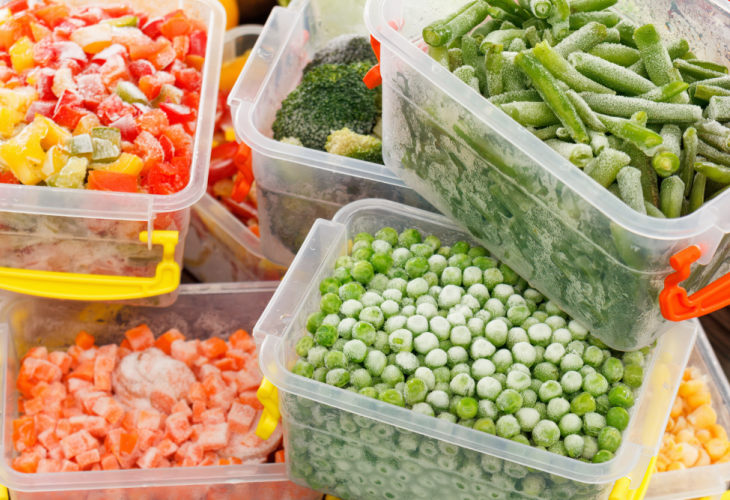Your Guide to Freezing Food: Tips for Vegetables, Pasta, Fruits, and More
What can you freeze? How should you freeze it? How do you defrost properly? Here's your ultimate guide to freezing food. A must-read to keep your meals fresh.

In today's fast-paced world, cooking in large batches and freezing has become more efficient. A key question remains: Does food lose its nutritional value during freezing?
Contrary to popular belief, freezing not only preserves our meals but also halts the growth of bacteria such as Salmonella, E. coli, and molds while maintaining the flavors, vitamins, and minerals of the frozen food.
What can you freeze? Almost everything - from vegetables and fruits, bread and meat, to foods like soups, patties, sauces, stews, and even legumes.
However, knowing how to freeze is essential; otherwise, your dish may lose its taste and become mushy with an off smell.
According to Tami Adviv, a clinical dietitian at "Clalit", there are rules for proper freezing: how to freeze, how to defrost, and what to do in between. Here's the complete guide:
- Cool food as quickly as possible before placing it in the freezer. Do not put very hot food in the freezer. In winter, it's simple to cool the food quickly - just place it on a table near the window. The air flow will cool it swiftly.
- Store food in airtight and small containers. The smaller the container, the less air inside, and frozen air dries out the food. If the food comes into contact with cold and dry air, it will end in freezer burn, ruining the texture and taste. It's best to store food in glass or stainless-steel containers. It is not recommended to freeze in bags, cling film, or plastic containers. While convenient, it's not healthy as the plastic may release chemicals that transfer to the food.
- If the food is intended for long-term freezing, place it deep in the freezer. This is the coldest spot.
- Not all foods last long in the freezer. Store-bought frozen vegetables, for instance, can last around 8 months in the freezer, cooked grains (like rice) can last six months, and cooked pasta only up to two months. Cooked beef and fish can be stored up to two months, while cooked chicken can be kept in the freezer for up to four months.
- Slicing bread before freezing makes it easy to take out one slice at a time without defrosting the entire loaf.
- Fruits can be frozen, but if you don't eat the peel, peel them, cut into cubes, and then freeze. They can later be used in a healthy and delicious smoothie.
- Avoid freezing leafy greens, potatoes, and sweet potatoes. Also, it is not recommended to freeze store-bought ready meals, like those from a restaurant.
Tips for Proper Defrosting:
- If the food has an odd smell or has changed color after defrosting, don't take risks.
- After defrosting, heat food only once to avoid increasing bacteria levels in the dish.
- From the start of defrosting, consume the cooked food within one day.
- It's best to defrost food in a deep or wide dish to contain any juices dripping from the food.

